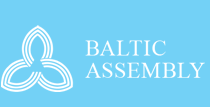Parliamentarians welcome joint efforts of the Baltic states in digital matters
On 12 February 2021, the joint meeting of the Economics, Energy and Innovation Committee and the Natural Resources and Environment Committee of the Baltic Assembly was held.
During the meeting, parliamentarians discussed the economic recovery of the Baltic states, including the joint efforts and exchanges of practices to overcome the challenges posed by the crisis. “The COVID-19 pandemic has been a huge burden for the economies of the Baltic states and the impact of the pandemic must be mitigated. Small economies are quite vulnerable to such challenges. Therefore, by joining our forces we can come out of this crisis faster and become stronger and more resilient,” said Chair of the Natural Resources and Environment Committee Ligita Girskienė.
Experts informed the parliamentarians about the economic situation in the Baltic states as well as pointed out different measures that countries have chosen to mitigate the impact of crisis. Governmental representatives agree that the Baltic states should work more together to overcome the crisis and there are numerous areas that would gain for Baltic cooperation in a variety of forms.
The meeting also covered digital economy and connectivity of the Baltic states, discussing the progress and cooperation areas of the Baltic states. The parliamentarians welcomed the joint efforts of the Baltic states in digital matters and agreed that together the Baltic states could achieve even more. “The Baltic states are excellent in digital area and we have the potential to be leaders in the European Union in digital matters. Competitiveness is important, but in order to achieve a status of leaders the Baltic states need to cooperate more,” added Ligita Girskienė.
During the second part of the meeting, governmental representatives and parliamentarians discussed the implementation of the recommendations of the Baltic Assembly in 2020. One of the most discussed topics was project RailBaltica. Invited experts assured that the project is doing well despite the challenges posed by the COVID-19 and that cooperation of the Baltic states is effective.


